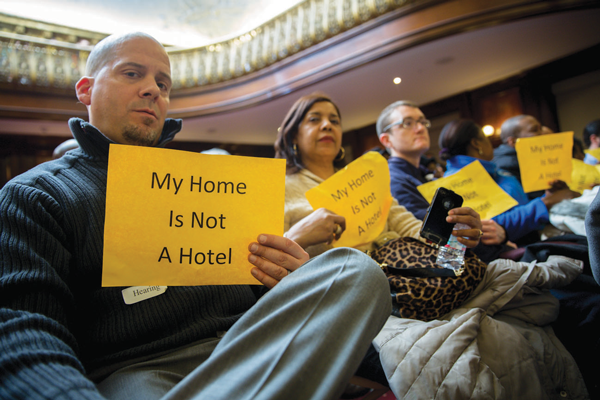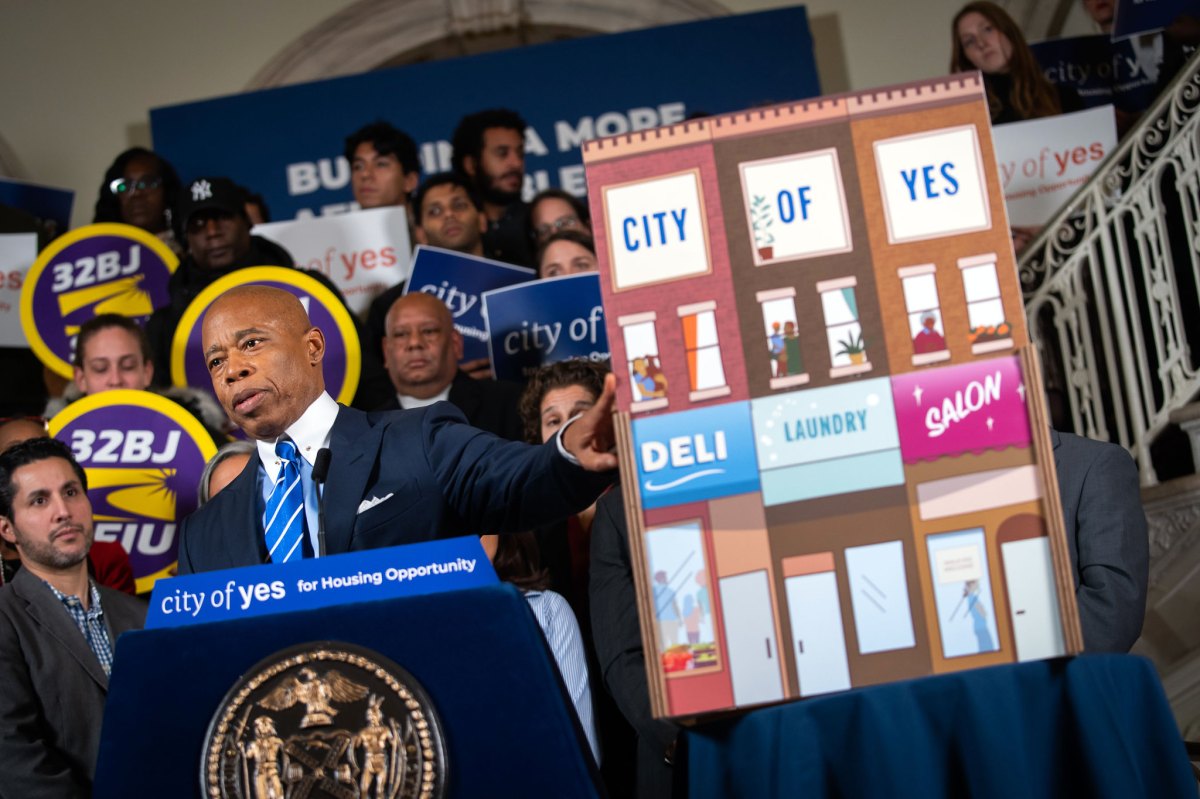
BY SYDNEY PEREIRA | A judge blocked a city law aimed at regulating home-sharing sites like Airbnb and Home Away in a preliminary injunction last Thurs., Jan. 3.
Last year, the City Council passed a law that would have required companies like Airbnb to submit data to the Mayor’s Office of Special Enforcement regarding the names and addresses of hosts, whether short-term rentals include an entire apartment or a portion of it, plus information about fees and the number of days that a listing is rented. Under the law, which would have gone into effect this year, failure to provide the data would have resulted in fines of $1,500 per listing for each required reporting period.
Airbnb called the law an “extraordinary act of government overreach” that would violate the Fourth Amendment, according to its complaint filed last August.
Last week, federal District Judge Paul Engelmayer granted a preliminary injunction, which prevented the law from going into effect until he makes a final decision on the lawsuit.
“The decision today is a huge win for Airbnb and its users, including the thousands of New Yorkers at risk of illegal surveillance who use Airbnb to help make ends meet,” an Airbnb spokesperson said in a statement. “The court today recognized the fundamental importance of New Yorkers’ constitutional rights to privacy and the sanctity of their own homes.”
Councilmember Carlina Rivera, who sponsored the legislation, tweeted: “This isn’t over. We will see this process through as we keep fighting to get back our affordable housing stock from illegal short-term operators.”
Rivera’s law, co-sponsored by more than three-dozen other councilmembers and passed unanimously, was originally aimed at cracking down on home-sharing services, which watchdogs have alleged are further fueling rising rents.
City Comptroller Scott Stringer found that nearly 10 percent of the city’s rent increases since 2009 are attributable to pressures created by Airbnb, according to report from last May.
Airbnb’s lawyers applauded the judge’s order, though it is not the final ruling and the case is ongoing.

Attorney Robbie Kaplan, of Kaplan Hecker & Fink, said the decision shows that “all Americans (including businesses) have a right to privacy in their records.”
“No government can force a company to simply turn over its entire hard drive every month without any form of precompliance review,” Kaplan said in a statement. She added that the judge’s “cogent and comprehensive opinion takes old-world concepts which inspired the founders to enact the Fourth Amendment in the first place and applies them to today’s modern, high-tech world.”
“The decision makes clear that the city cannot simply force Internet platforms to provide what the city is not otherwise allowed under the law without process,” Sharon Nelles, another Airbnb attorney, of Sullivan & Cromwell, said in a statement.



































